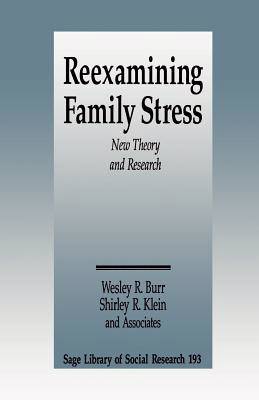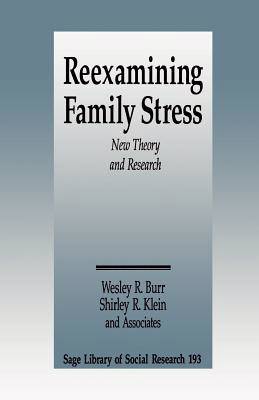
- Retrait gratuit dans votre magasin Club
- 7.000.000 titres dans notre catalogue
- Payer en toute sécurité
- Toujours un magasin près de chez vous
- Retrait gratuit dans votre magasin Club
- 7.000.0000 titres dans notre catalogue
- Payer en toute sécurité
- Toujours un magasin près de chez vous
216,95 €
+ 433 points
Description
The study of family stress has been dominated by the ABC-X model developed over several decades by Rueben Hill and other researchers. Now, the distinguished authors of this volume, along with a group of their colleagues and students, reexamine the theoretical literature in search of a better way of understanding stress and its management in families. They liberate their inquiry by setting aside traditional positivist notions in favor of a systematic paradigm--one that allows them to view stress as a multifaceted phenomenon with multiple causes and coping strategies. Then, using a series of qualitative and quantitative studies of different families in stress, they outline the various patterns of family responses to stress, the elements of the family system impacted by stressful events, and the helpfulness and harmfulness of management strategies in different families. The research and theory found in Reexamining Family Stress--and its implications for practitioners--is an important step forward in our understanding and dealing with families experiencing stress. "In Reexamining Family Stress, authors Wesley R. Burr, Shirly R. Klein, and associates present a systemic model of family stress that moves sharply away from the popular, positivist ABC-X models. Within this presentation, the authors include a comprehensive discussion of the theory upon which they build their model and of the outcome research they completed to answer the unique questions that emerged in the model′s development." --Journal of Family Therapy "In Reexamining Family Stress, Wesley R. Burr, Shirley R. Klein, and associates offer the field a fresh perspective to family stress theory. Their book builds on the earlier theory building efforts by Robert Burr, using a systemic approach, and tests this refined theoretical approach with an empirical study. . . . The book makes a unique contribution to the family stress field." --Journal of Marriage and the Family "Highly recommended to professionals and students in the fields of health promotion, social work, and family and mental health in all settings (work, religious, community, provider, etc.). With a growing concern about the health of the family amidst the sea of potential family and societal stressors, this book offers many excellent insights and perspectives, and well-documented recommendations on some of the most effective coping strategies. Many of these strategies can be developed, nurtured, and strengthened throughout life allowing all members of the family to be better prepared when family (or life) stressors are encountered. Even if stressors are minimal, many of these same strategies are good for building strong, thriving families and individuals. This is a book well worth the reading!" --American Journal of Health Promotion
Spécifications
Parties prenantes
- Auteur(s) :
- Editeur:
Contenu
- Nombre de pages :
- 224
- Langue:
- Anglais
- Collection :
- Tome:
- n° 193
Caractéristiques
- EAN:
- 9780803949300
- Date de parution :
- 18-11-93
- Format:
- Livre broché
- Format numérique:
- Trade paperback (VS)
- Dimensions :
- 143 mm x 219 mm
- Poids :
- 312 g

Les avis
Nous publions uniquement les avis qui respectent les conditions requises. Consultez nos conditions pour les avis.






